Seaduck: A python package for Eulerian and Lagrangian interpolation on ocean datasets
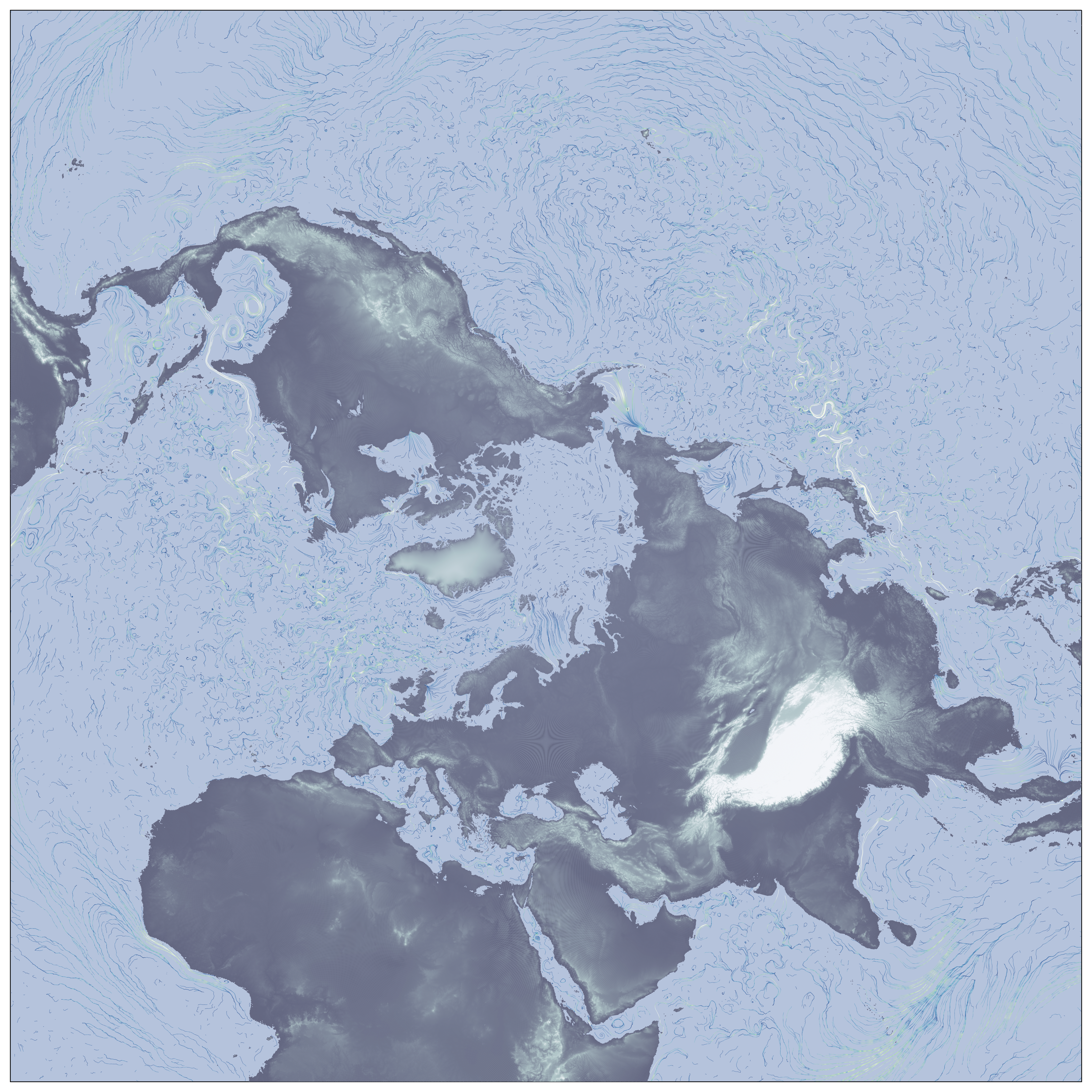
Numerical simulations of the Earth’s oceans are becoming more realistic and sophisticated. Their complex layout and sheer volume make it difficult for researchers to access and understand these data, however. Additionally, most ocean models, mostly finite-volume models, compute and calculate spatially-integrated properties, such as grid-cell averaged temperature or wall-integrated mass flux. On the other hand, […]
Poseidon-viewer LLC4320 visualization tool launched
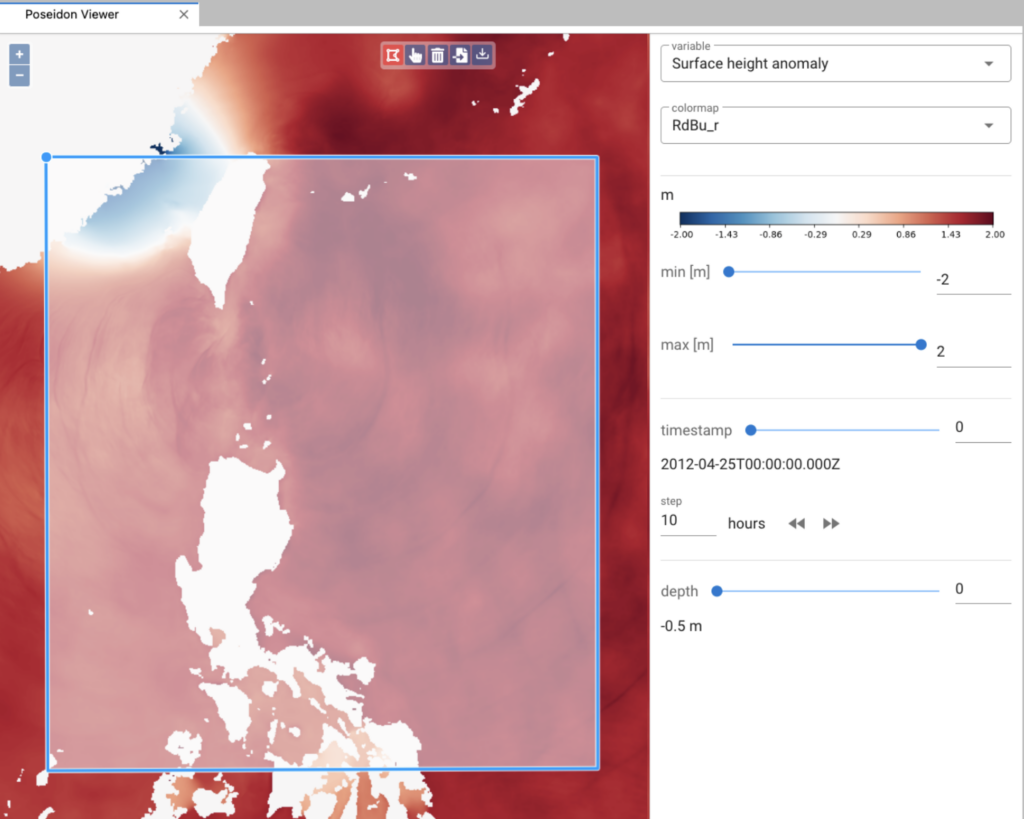
The Posiedon-viewer tool is now available for public use. Browse the global 1-km resolution LLC4320 model solution with ease. The Poseidon-viewer is interactive and responsive. Run it standalone here, or from a SciServer Oceanography (integrated viewer) container.Enjoy exploring!
Seaduck interpolation software computes Lagrangian trajectories

The Poseidon team has published a new interpolation software tool. Graduate student Wenrui Jiang has led the effort and calls the package Seaduck. Seaduck is a flexible python tool that interpolates data from ocean datasets from both Eulerian and Lagrangian perspective. For example, it can efficiently compute Lagrangian particle trajectories in the Poseidon ocean circulation […]
Upgrades to OceanSpy improve performance
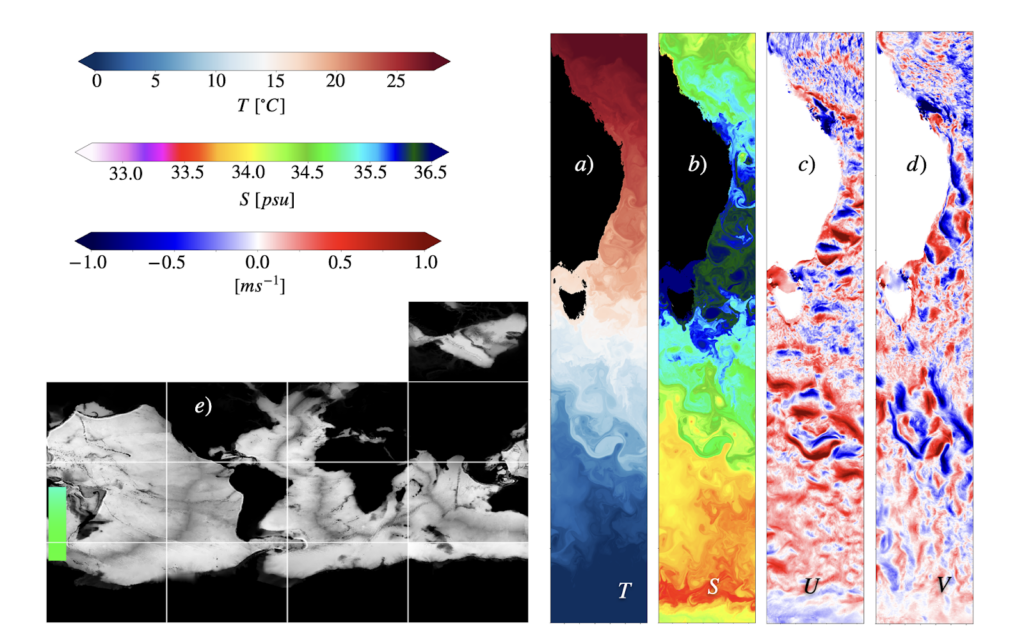
OceanSpy v0.3.0 has been released. This major upgrade improves performance with massive datasets, like LLC4320. Specifically, the llc_rearrange function now seamlessly manages cutout requests that cross faces in the LLC geometry. For example, one can extract large regions (see figure) or long sections. Many other minor issues are fixed. New tutorial notebooks on llc_rearrange are […]
University of Bergen Workshop in Computational Oceanography
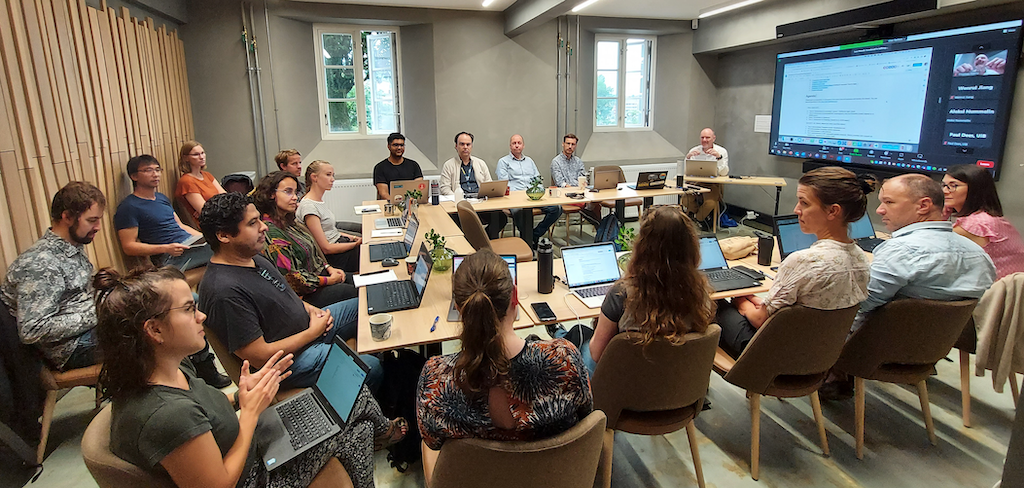
The Poseidon Project held a workshop in computational oceanography at the Geophysical Institute, University of Bergen, in beautiful Bergen, Norway. The workshop involved lectures, demonstrations, and hands-on training with OceanSpy, SciServer, the Poseidon-viewer, ECCO and LLC4320 data.
ECCO data available on SciServer and OceanSpy
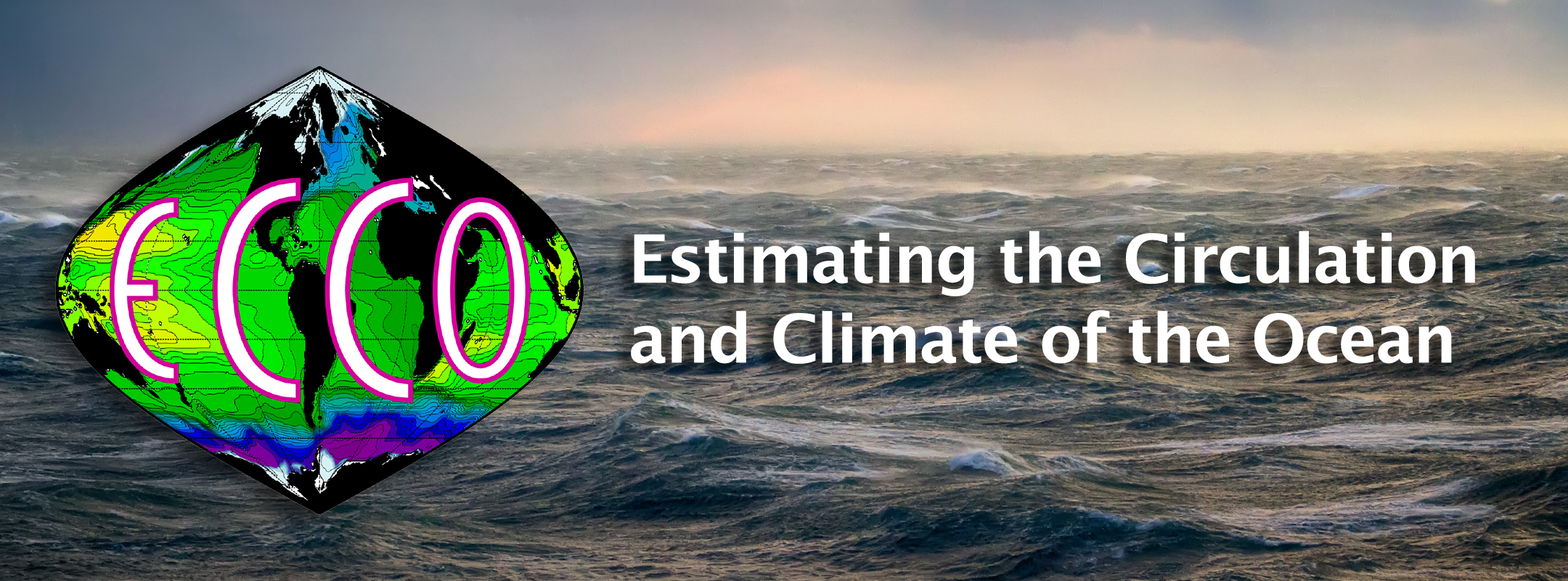
The ECCO (Estimating the Circulation and Climate of the Ocean) v4r4 solution is available on SciServer and ready for analysis with OceanSpy. Select the OceanCirculation data volume when you create your SciServer Compute container and have fun! A Jupyter notebook tutorial on how to use the ECCO data will be posted soon.
OceanSpy v0.2.0 Released
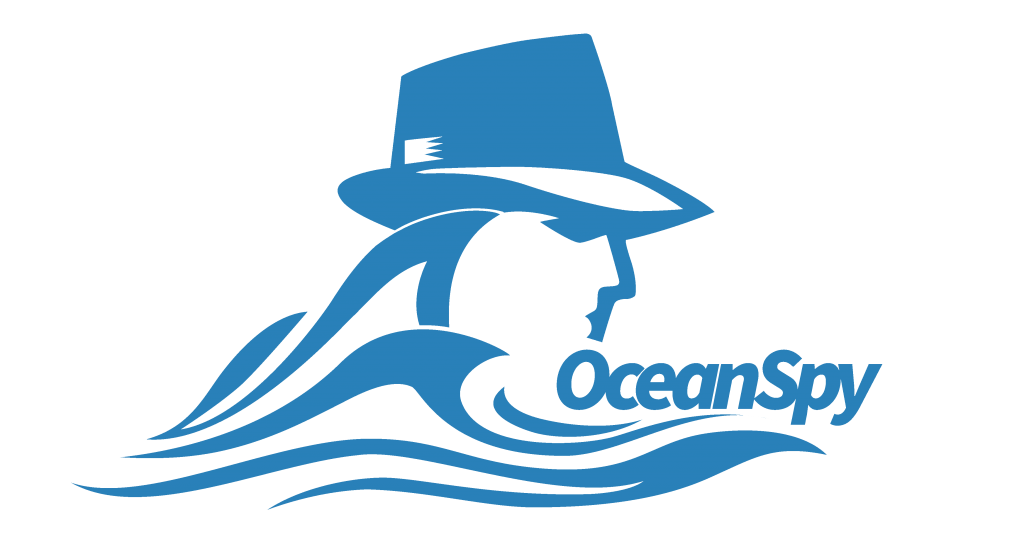
Miguel Jimenez Urias, Ali Siddiqui, and Mattia Almansi have updated OceanSpy to version 0.2.0. The release merges new functionality to support lat-lon-cap (LLC) grids. LLC grids are used by many models in the MITgcm ecosystem, including the LLC4320 run, the Poseidon Run, and the ECCO solutions. See details on the new release here.

